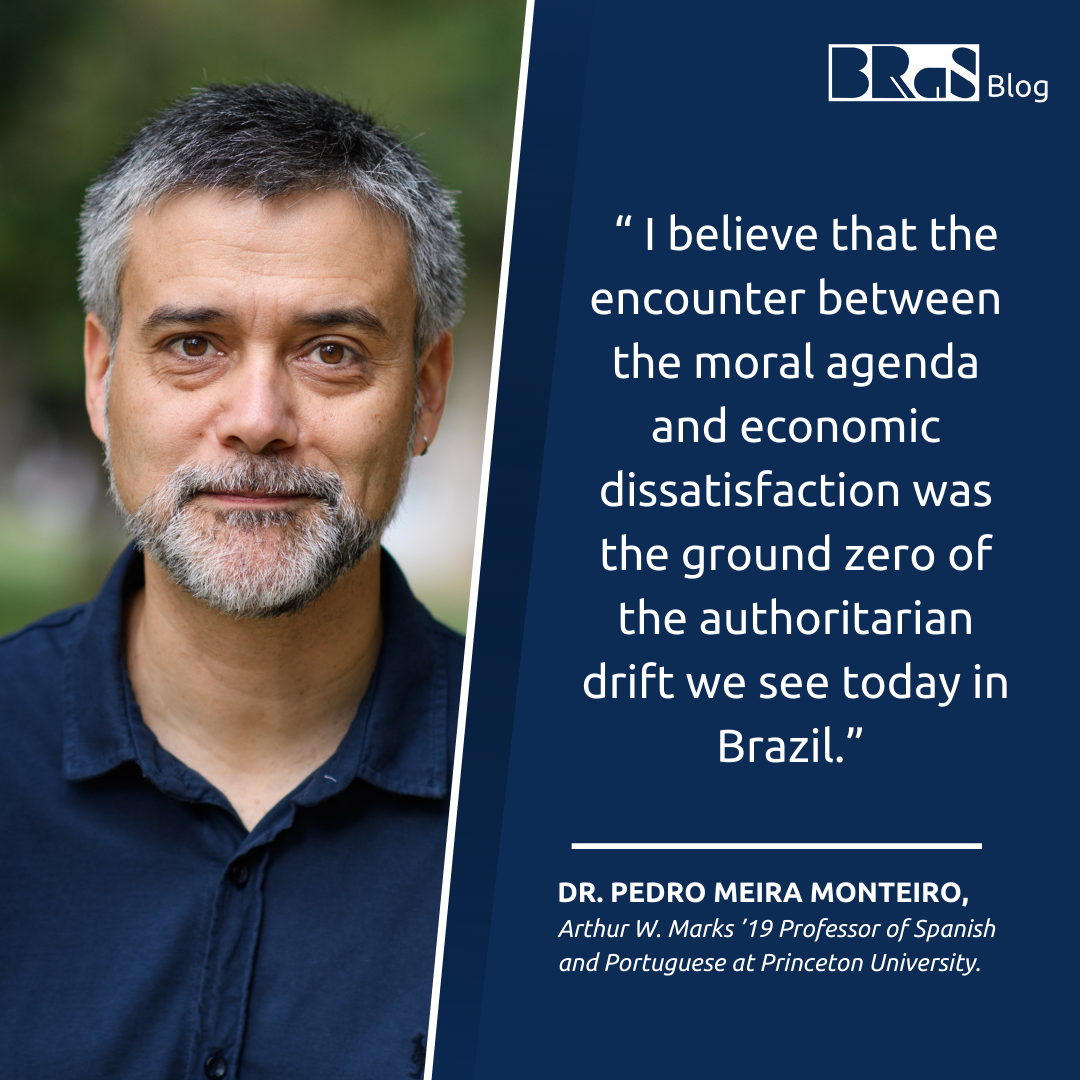by Vanderlei de Freitas Nascimento Junior, Federal University of São Carlos (UFSCar) and member of the Constitutional Studies Research Group at BRaS
Reviewed by Matheus Lucas Hebling
Democracy requires that citizens are not treated in the same way that experts treat them in their respective technical deliberations, requiring real social inclusion. Therefore, the need for greater investment specifically focused on science education is highlighted, to provide an academic basis for all knowledge professionals to understand and develop, in the best possible way, their scientific practices.
Technologies and new forms of knowledge have always developed within specific social contexts, involving countless agents and agencies in their production and propagation in the name of public welfare. Given the current social and political organization of society, it is possible to note that there have been significant changes in the media, placing all human beings in a network, especially after the verification of the countless technological advances provided by science, by the fusion of biotechnology with technology. of information, especially in the period of the degree of social isolation used as a means of containing the pandemic COVID-19.
Therefore, the barriers of time and space were broken, so that virtual relationships intensified, changing old communication habits, as well as new services that were exclusively in person were forced to adapt to virtuality, for example, education remotely, remote medical appointments, food services in delivery and drive-thru mode.
With all these changes in social behavior, it is impossible not to notice the inefficiency of many governments in guaranteeing social rights for all their citizens, especially for the least economically disadvantaged population. On the other hand, the popularization of the media and the expansion of access to the world wide web, through the so-called social networks, amplified the active voice of ordinary people in society, characterizing a new form of democratic and popular manifestation.
From this context, the following questions are raised:
• What is the model of today’s contemporary society?
• What are its main characteristics?
• How to guarantee access to justice for all citizens?
• What are the new forms of exclusion generated by a society marked by the performance of highly specialized and developed computers, capable of solving almost all types of problems based on the use of algorithms?
Based on the problem raised, it is possible to consider this text as a preliminary study on the virtualization process of access to justice in the current algorithmic society, with a specific focus on state action. In the future, we intend to deepen the problem raised by the hypotheses raised, using the inductive method to create a new social and legal perspective aimed at combating the new forms of social exclusion, having as a theoretical reference: the full text of the Federal Constitution of Brazil, promulgated in 1988, which in turn represents the consolidation of the ideals defended by the various international constitutionalist movements and by Human Rights.
Since the human being started to live in an organized and productive way, all his political and economic domain over the others were supported by specific narratives and social constructions. But it was during the 20th century that the main global elites of this period, represented by the cities of New York, London, Berlin, and Moscow, developed three great narratives: the fascist, the communist, and the liberal (HARARI, 2018, p. 13). This search for power and global economic domination sparked several political, ideological, and warlike disputes, such as the Second World War that defeated the fascist narrative, so that until the end of the eighties, the world was the scene of the tireless dispute between the communist and liberal narratives.
It should be emphasized that the liberal narrative has valued and still values the principle of freedom, as there would be no other way but to abandon the old dictatorial regimes, replacing them with democratic and more liberal regimes. Even with the adoption of the liberal narrative, much of the planet is dominated by tyrants, and even in the most liberal countries, citizens still suffer from poverty, violence, and oppression. But what are the possible solutions to such problems?
According to Harari (2018), it is necessary to grant more freedom to citizens, always guaranteeing everyone human rights, fundamental rights and guarantees, such as the right to vote, free-market initiative, freedom of expression, free movement, freedom of the press, among others. The true Democratic State of Law must be concerned with the forms of guaranteeing the exercise of social and individual rights of each citizen, deserving special attention to the rights to life, freedom, well-being, development, equality, and justice. As a result, the term democracy came to be seen as an instrument for the realization of fundamental rights and guarantees in a democratic society, and it should always seek mechanisms to achieve social balance and well-being.
For Ferraz Junior (2019, p. 7-8): “[…] Societies are in transformation and the complexity of the world is demanding new forms of manifestation of the legal phenomenon” so that the compact form of law instrumentalized, uniformed and generalized can guarantee conditions of equality and well-being for the groups and the people who compose them.
REFERENCES
FERRAZ Junior, Tércio Sampaio. Introdução ao estudo do direito: técnica, decisão, dominação. – 11. ed. – São Paulo: Atlas, 2019.
HARARI, Yuval Noah. 21 lições para o século 21. Tradução Paulo Geiger. São Paulo: Companhia das Letras, 2018. 432p.
BENEVIDES, Maria Victoria de Mesquita. A cidadania ativa: Referendo, plebiscito e iniciativa popular. São Paulo (SP): Editora Ática S.A., 1991.
CAPPELLETTI, Mauro. Acesso à Justiça – Mauro Cappelletti / Bryant Garth. Tradução de Ellen Gracie Northfleet. Porto Alegre, Fabris, 1988. 168p.
GLOBAL ACESS TO JUSTICE PROJECT. Access to Justice: a new global survey. Disponível em: http://globalaccesstojustice.com/. Acesso em: 28.10.2020.
HAUGER, J. Scott. STS Education for Knowledge Professionals in Science, Technology, and Society: A Sourcebook on Research and Practice. New York: Kluwer Academic/ Plenum Publishers, 2000, p. 231-255.
JASANOFF, Sheila. Science and Democracy in The handbook of science and technology studies / edited by Ulrike Felt, Rayvon Fouché, Clark A. Miller, and Laurel Smith-Doerr. Description: Fourth edition. Cambridge, MA: The MIT Press, 2017, p. 259-287.
MITRE, Maya. As relações entre ciência e política, especialização e democracia: a trajetória de um debate em aberto. Estudos Avançados, v. 30, n. 87, p. 279-298, 2016. Disponível em: http://www.scielo.br/scielo.php?script=sci_arttext&pid=S0103-40142016000200279. Acesso em 13.04.18.






